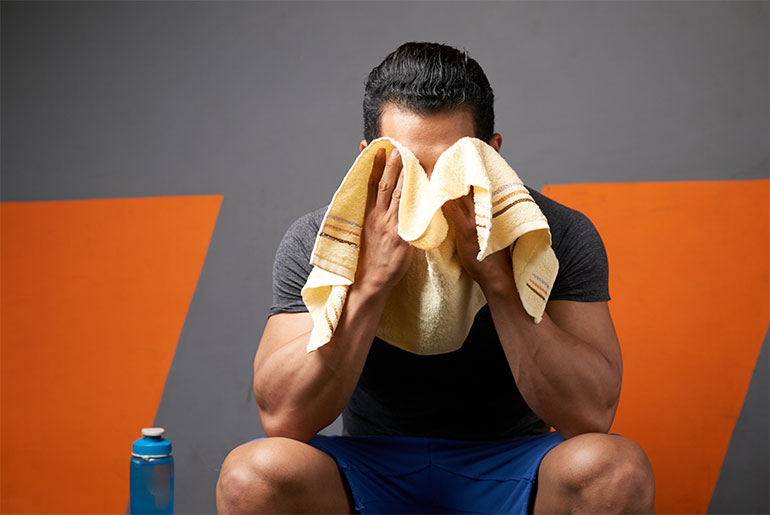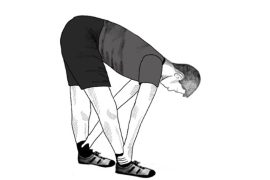Sweating is important, and it has been observed that we lose a lot of body fluid through sweat. There are many reasons which lead to sweating, ranging from hot weather, nervousness, a fever, exercise, and being in a sauna. Sweating can dehydrate us, stress us out, or remind us our body is fighting an illness. In contrast, it may invigorate us on a hike or when working out in a gym. However, regardless of all the negative circumstances, sweating is good as far as exercise is concerned. With the help of this article, we will try to figure out some of the details regards to sweating and will also find out the proven health benefits of sweating.
Is Sweating Good for Health
From a physiological perspective, sweating is certainly a good thing. Our bodies would tend to overheat if we did not sweat. During sickness, sweating is not good, as it shows the severity of the particular illness. However, sweating during exercise usually means you are reaching a level of exercise that promotes cardiovascular health. Some evidence suggests sweatier people are getting a more intense workout, and more fit individuals sweat sooner and more profusely, but tremendous variation in the timing and amount of sweat across individuals makes those claims unreliable. Instead, focus on reaching a level of exercise in which sweat actually shows up, rather than measuring the timing or amount. Just because it is summer and hot outside, do not assume it means you should not work out. On those days, exercise in air-conditioned environments, choose the cooler times of the day and keep hydrated. Stop exercising if you experience unusual symptoms, such as dizziness and nausea. In such a case remember to consult a doctor immediately.
Causes of Sweating
The human body’s ideal temperature is around 98.6 degrees Fahrenheit. This figure varies from person to person, but this is the average core temperature, which has been scientifically justified. If our body gets too hot, our brain sends a message that the body needs to cool down. This message comes from the hypothalamus, which is a part of the brain that controls our body’s temperature. Hence to cool down, our body begins to release sweat.
As our body begins to sweat, glands in your skin that can be found all over your body release the sweat. We have higher numbers of sweat glands on our forehead, armpits, the palms of our hands, and the soles of our feet. These glands release sweat so that, as it evaporates, our body temperature falls.
What is Sweat Made of
Sweat is formed up of mostly water. A little portion of your sweat contains other things, which include: –
- Electrolytes like sodium, potassium, calcium, and magnesium. Electrolytes help to trigger different necessary responses in your body, so it’s important to exchange them after periods of heavy sweating.
- Small amounts of pheromones, which are chemicals that act like hormones outside of your body.
- Bacteria that grow within the sweat that we release, these bacteria contain body odour.
- Tiny amounts of wasteful toxins.
Benefits of Sweating
1.) Boosts Endorphins Hormones – One of the most important benefits of sweating is that it boosts endorphin hormones. Prolonged sweating is expected to occur at the gym during an intense workout or even brisk walking in the sun. Exercising increases the level of the feel-good endorphin hormones that are naturally released during physical activity. According to studies, it has been found that group workouts actually increase endorphin levels and cause less pain for those who work out together than those who train alone. Sweating it out during group exercises like Zumba or hot yoga can help put a smile on your face.
2.) Detoxifies Body – One of the most important benefits of sweating is detoxification. Sweating flushes the body of substances of alcohol, cholesterol, and salt. The body releases toxins by using sweat as the conduit. Sweat purges the body of toxins that can clog pores and plague the skin with pimples and blemishes.
3.) Lowers the Risk of Kidney Stones – One of the most important benefits of sweating is that it lowers the risk of kidney stones. Sweating can be an effective way to sweat out the salt and retain calcium in your bones. This limits the accumulation of salt and calcium in the kidneys and urine, which is where the stones come from. It is no coincidence that people who sweat tend to drink more water and fluids, which is another prevention method for kidney stones.
4.) Prevents Cold – One of the most important benefits of sweating is that it helps to fight tuberculosis germs and other dangerous pathogens. Sweat contains antimicrobial peptides effective against viruses, bacteria, and fungi. These peptides are positively charged and attract negatively charged bacteria, enter the membranes of bacteria, and break them down.
5.) Helps in Weight Loss – One of the most important benefits of sweating is that it helps in weight loss. Yes, you may lose water weight during a session that will inevitably come right back, but because your body is working so hard to cool you down, you are also using energy and burning calories, which contributes to more permanent weight loss.
6.) Boosts Heart Health – One of the most important benefits of sweating is that it helps to boost heart health. Sweating, either from physical exercise or from sitting in a sauna environment, can reduce the risk of cardiovascular health problems.
Disclaimer:
The information contained in this article is for educational and informational purposes only and is not intended as a health advice. We would ask you to consult a qualified professional or medical expert to gain additional knowledge before you choose to consume any product or perform any exercise.








